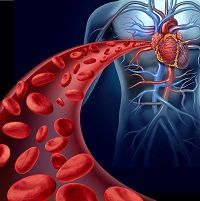Novel Oral Anticoagulants Reduce the Risk of Death From Major Bleeding Events in Patients with Atrial Fibrillation
A new review and meta-analysis finds that - despite the lack of drug-specific antidotes to arrest major bleeds - novel oral anticoagulants are associated with a lower risk of fatal bleeds than warfarin in patients with atrial fibrillation.

A new review and meta-analysis finds that — despite the lack of drug-specific antidotes to arrest major bleeds — novel oral anticoagulants are associated with a lower risk of fatal bleeds than warfarin in patients with atrial fibrillation (AF).
The study team tabulated results from 5 phase 3 trials in AF patients, along with results from another 6 phase 3 studies in patients with venous thromboembolism (VTE). Data from 100,324 patients reported results on all 4 of the novel oral anticoagulants (NOACs) that have been approved for use in the US: rivaroxaban (4 studies), dabigatran (3 studies), apixaban (2 studies) and edoxaban (2 studies).
Overall, patients who received NOACs suffered only about half as many fatal bleeds as those who used a vitamin K antagonist such as warfarin (odds ratio [OR], 0.53; 95% confidence interval [CI], 0.42-0.68; heterogeneity [I2] = 0%). The overall risk was low with both types of medicine, but NOAC use translated into 3 fewer events per 1,000 patients.
By some measures, NOAC use fared even better when compared to treatments that used low molecular weight heparin followed by vitamin K antagonists, though the analysis proved considerably less certain of the exact degree of benefit (OR, 0.36; 95% CI, 0.15-0.84; I2=0%). By other measures, however, treatment with low molecular weight heparin and vitamin K antagonists came closer to matching the performance of the newer treatments; the researchers estimated that NOAC use prevented only 1 event per 1,000 patients.
NOAC use was also associated with lower rates of fatal bleeding in both AF patients (OR, 0.68; 95% CI, 0.48-0.96; I2=37%;) and VTE patients (OR, 0.54; 95% CI 0.22-1.32; I2=0%), though the numbers for VTE patients did not reach statistical significance.
Some of this benefit stems from the lower risk of major bleeds that is associated with NOAC use, but even when researchers looked only at patients who suffered major bleeds, the lack of antidotes did not lead to worse outcomes for NOAC users. To the contrary, NOAC use in AF patients was associated with 1 death avoided for every 39 major bleeds. AF patients who survived major bleeds, moreover, had lower subsequent mortality than patients treated with vitamin K antagonists (OR, 0.57; 95% CI, 0.45-0.73; I2=0%) There were, on average, 78 events avoided per 1,000 survivors of major bleeding.
“The absence of an antidote for NOACs for emergent haemorrhagic events is considered by many as one of the main drawbacks of this group of drugs and argues against their routine use,” the authors of the new study wrote in Heart before stating that, while antidotes could certainly reduce the risk of NOAC use even further, their current unavailability probably should not deter the use of NOACs today.
To the contrary, the study authors noted, the new class of drugs was associated with improved outcomes in both types of patients but especially in AF patients.
“In patients with AF these drugs were also associated with a significant decreased risk of all-cause mortality in major bleeding survivors,” they wrote. “Major bleeding case fatality was also significantly reduced in this context but estimates may be underpowered as the required information size was not reached (72.5% of the required information size).”